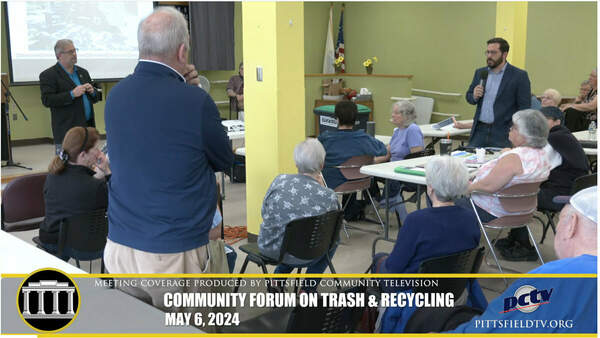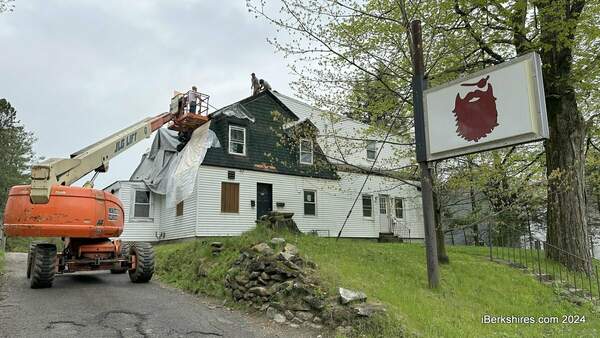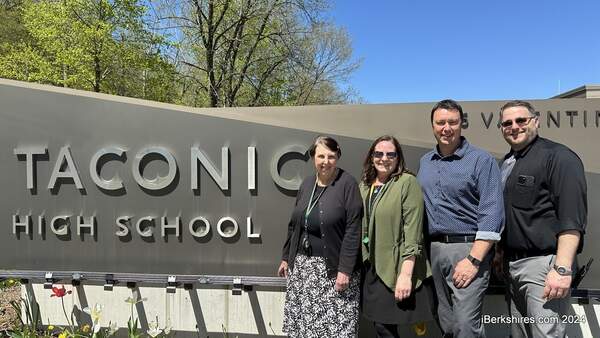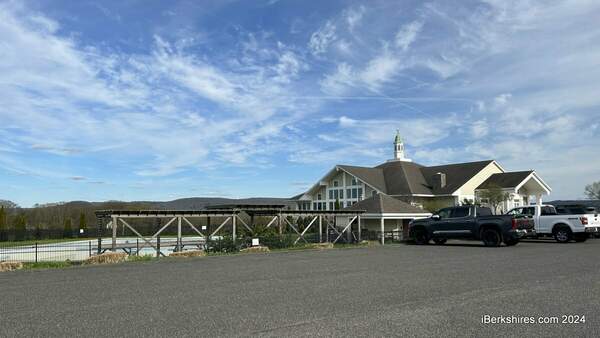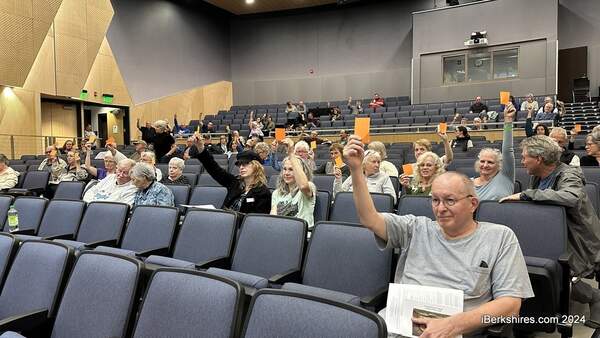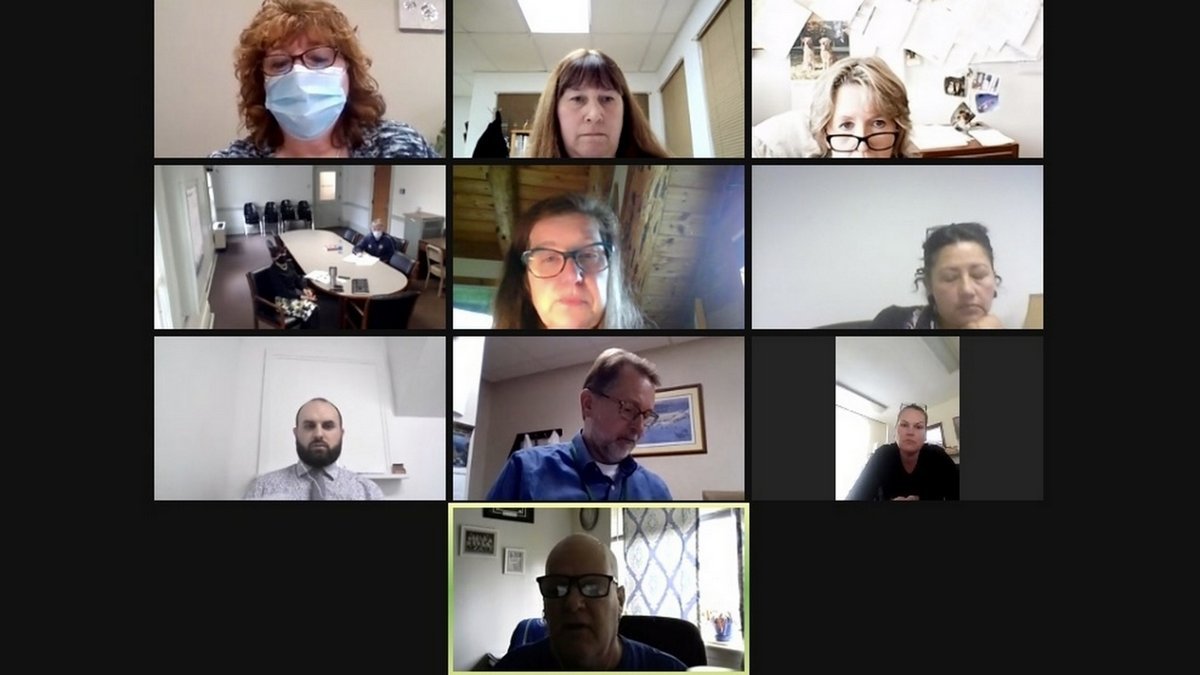
Councilor Maffuccio Resigns From Homelessness Panel, Members Continue to Talk Solutions
PITTSFIELD, Mass. — Ward 7 Councilor Anthony Maffuccio has resigned from the Homelessness Advisory Committee, citing frustrations with the ineffectiveness of the 10-month-old panel.
"I don't know about everybody here, but I signed up for the Homeless Advisory Commission, and this conversation that we're having today is more like low-income people we should be talking about, and that's not the population we're dealing with, we're dealing with homelessness in the community of the city of Pittsfield," he said to the committee on Wednesday.
"So that being said, with all my frustrations in the way this group is leading, it's no different than the dysfunctional group that was disbanded and reorganized with this group. So as of today, after this meeting, my resignation will be in because you have no direction, no leadership whatsoever."
The panel was established in December 2020 as a refined version of the Homelessness Prevention Committee that was reactivated in September 2018.
In an email to iBerkshires and other local media, Maffuccio outlined a number of reasons that he is leaving the committee. His resignation is effective on Oct. 6.
He stated concerns with the leadership of the committee and claimed that decisions being made behind closed doors, that there was a lack of planning to keep homeless individuals safe from the COVID-19 Delta variant, that the same information is being repeated at every meeting, and that no official count of how many are unhoused in the city.
He also called for Mayor Linda Tyer to rescind the committee for lack of reaching any goals.
Chairwoman Kim Borden thanked Maffuccio for his time on the committee.
"I'm sorry that you're just dissatisfied, and I would like to thank you for the time and effort that you put into this committee," she said. "And I'm sure everyone else would as well."
At the panel’s last meeting, members were asked to identify service gaps in the city’s response to homelessness and bring recommendations to Wednesday's meeting that will go to Tyer.
On Wednesday, a "one-stop shopping" venue was largely suggested where individuals can sleep, shower, eat, and receives services. The operation would be similar to Behavioral Health Network's "The Living Room" in Springfield.
Members also pushed for long-term supportive services that keep people in housing once it is acquired.
Maffuccio supported these two suggestions despite his resignation.
The panel has formerly discussed the use of newly acquired American Rescue Plan Act (ARPA) funds or Community Development Block Grant (CDBG) funds for these suggestions.
"I think one of the things that I would like to see is a Living Room program in Pittsfield, which is a program that is funded by the Department of Mental Health and other grant funding," the department's Berkshire Site Director Christine Haley said. "It's sort of like a one-stop shopping kind of place."
Karen Ryan, food director at the Christian Center, said that, as a formerly homeless person, she likes the idea of a service hub being in the downtown area.
"I haven't been homeless in 12 years, but I always was able to get an apartment, but I could never keep it, there's a lot to go into when you get an apartment, I would like to see some kind of team that follows these people," she added.
"I see a lot of people who get apartments, but they lose them in a couple of months because they don't have the skills to pay their rent, substance abuse, mental health, budgeting, they don't have the skills to keep the apartment, it's very easy to get in but then after that, there's no one following them, so I'd like to see some kind of team of a bunch of people following people when they get in."
Committee members agreed that both a one-stop spot and long-term assistance to keep people in housing are good suggestions.
Soldier On's Executive Vice President Matthew Buckley put an emphasis on the transitional services being mobile, as people are more likely to take the help it comes to them.
"A lot of times what I've seen in some of the population we're working with are moving into a unit that maybe transportation then all of a sudden there's an issue for that, and they're more isolated where they are," he explained.
"And if we aren’t bringing that team of services right to them, then it's a very slippery slope and sometimes quick process for them to end up that being our homeless shelter, unfortunately."
He added that some day-to-day activities like grocery shopping, paying rent, and writing a check are difficult for those experiencing chronic homelessness because of anxiety and require support.
Haley added that the DMH does have a program to support individuals after they acquire housing.
Committee member Edward Carmel seconded Maffuccio’s sentiments and advocated for getting funding to put a roof over unsheltered people's heads right away. He said he is sick of hearing "temporary" and that individuals would be more likely to seek help if they are first housed.
"Where are we? We're nowhere," he said in regards to the panel’s effectiveness.
Community Development & Housing Program Manager Justine Dodds said her suggestion to Tyer is for her to advocate for Pittsfield to make sure that it gets a fair share of federal and state funds that are out there to address homelessness.
"With the ARPA funds, as we heard last month about, it seems that this is a unique opportunity for us to be able to make some significant difference with this source of funding," she said.
"But again, I want to stress as most of you have that I think the supportive services are a critical component of that and it's not just the dollars to construct the housing, it's the follow-through that continues with that."
Other suggestions in the meeting included the need for subsidized housing, making downtown Pittsfield more accessible to the homeless population with public bathrooms and lockers, and expanded substance abuse care.
Tags: homeless,

